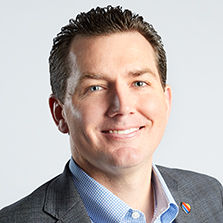
Southwest Airlines' 2022 holiday operations meltdown set the stage for a rocky 2023. What started as a weather event spiraled quickly into a referendum on Southwest's leadership priorities, outdated technology and preference for short-term margins over future resiliency.
By the end of what news outlets characterized as Southwest's "week of hell," the carrier was under investigation by the U.S. Department of Transportation for canceling in excess of 16,700 flights from Dec. 20 to Dec. 29. In a Dec. 29 letter to Southwest CEO Bob Jordan, DOT secretary Pete Buttigieg cited the airline's responsibility for the situation: "As Southwest acknowledges," read the letter, "the cancellations and significant delays at least since December 24 are due to circumstances within the airline's control."
Southwest took an estimated $800 million hit from the cancellations and customer compensation for tickets on alternate airlines. plus doling out frequent-flyer miles to affected fliers. The airline estimated an additional $300 million would be lost in revenue in the first quarter of 2023 due to loss of trust.
While a sales leader cannot be credited with righting the operations of an airline in a crisis, what chief sales officer Dave Harvey did achieve coming out of the meltdown was to lead the sales team to re-establish trust among the airline's shaken corporate customers.
From the beginning of the debacle, Harvey was in front of communications to corporate customers. First with acknowledgement, then taking responsibility. In his first letter to customers, regaining trust was the priority.
Harvey also leaned into social media to chronicle progress and investments the carrier was making in the wake of the meltdown. He posted middle-of-the-night-shift work snaps with frontline workers and continuously thanked the industry for its support and good will. Harvey served as the liaison between the corporate customer and Jordan, assuring the managed travel community they remained a key business partner in Southwest's ongoing plans and investments.
Harvey's forward-facing gestures and characteristic positivity presented specifically to corporate customers the carrier's recovery and prevention activities, which included a planned $1 billion investment in improved technology—specifically tech-related to crew positioning—winter storm-related equipment and overall staffing levels during winter months.
While offering insights into the IROPS issues, Harvey didn't let ongoing apologies obscure Southwest's strategic gains and goals for the corporate market. The team leaned into its recent global distribution system strategy and corporate sales investments as other major carriers—particularly American Airlines, also headquartered in Dallas—removed content from the GDS and dismantled key pillars of its corporate sales structure.
Harvey highlighted the commitment to the market with business-friendly route developments including Chicago O'Hare, Houston Intercontinental and Miami, and ongoing network restoration to high-frequency biz routes. Product enhancements like in-seat power, upgraded Wi-Fi and digital self-service kept business travelers connected. Corporate program enhancements like access to Wanna Get Away Plus fares and introducing UATP solutions increased flexibility for buyers.
According to internal Southwest reports of ARC data, the carrier’s combined efforts resulted in market share gains among business travel agencies from 9 percent of overall market share in the third quarter of 2022 to 12 percent by the third quarter of 2023.
In a year of twists and turns in the airline space, Southwest ended 2023 as the only airline able to increase its overall rating among travel managers in BTN's annual Airline Survey and Report—thanks to considerable jumps in distribution satisfaction, levels of customer service and value of relationship with account managers. All of those upsides speak to Harvey's astute corporate market strategy combined with sincere reputation and relationship management.